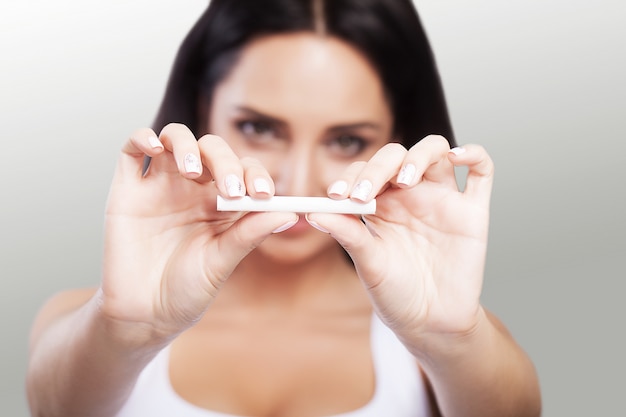Tips for healthy and youthful looking skin

Skin experts say that the best way to keep your skin healthy and young is to protect it from the sun, not smoke: And then it also helps to pay attention to how you wash, moisturise and shave your skin.
According to a 2008 survey by the British Association of Dermatologists, many Britons are unaware that sun protection can make skin younger. Instead, they believe it's enough to apply moisturizer, keep a healthy diet, drink plenty of water and massage your face every day.
The person in charge of the association's sun education campaign, Maria Tabu, told the press at the time that such measures "will have no anti-aging effect of sun protection.
UV exposure not only increases the risk of skin cancer, but also affects the elastin in the skin, resulting in wrinkles and aging skin due to the sun's rays, such as skin pigmentation and spotting. Below you will find 5 tips for healthy skin.
Tip #1 for healthy skin: Sun protection

According to the Mayo Clinic in Rochester, Minnesota, USA, a non-profit organization with an international reputation, most of the changes in skin aging are actually "caused by being in the sun for life.
To protect themselves from the sun, they recommend the following three methods (with maximum protection using all three)
Avoid exposure to the sun during high intensity hours: the sun's rays are most damaging between 10am and 4pm, so limit your outdoor time during this period.
Wear protective clothing: Wear long-sleeved shirts, long trousers or shorts and a hat with wide margins. Remember that a densely woven fabric (e.g. denim) provides better protection than a densely woven fabric such as a knitted fabric.
Use sunscreen: Choose a broad-spectrum sunscreen with a sun protection factor (SPF) of more than 15 and apply generously about 20 minutes before going out, then apply every two hours. If you enter the water frequently or sweat a lot, you will need to apply sunscreen more often.
Tip #2 for healthy skin: Do not smoke (and watch out for alcohol consumption)

Studies show that only smoking will age the skin. In a study published in the Dermatology Archive in 2007, researchers at the University of Michigan, Ann Arbour, USA, described how they examined the upper inner hands of smokers and non-smokers aged 22 to 91 years and found that, given age and other variables, the number of packs of cigarettes smoked by smokers per day was largely due to ageing skin. They examined the skin on the upper inner arms to minimize the effects of sunlight.
Indy Rihal, a British skin foundation, told NHS Choices that smoking reduces the skin's natural elasticity by promoting collagen destruction and also reduces the amount of skin produced.
Collagen is a protein that helps improve skin elasticity and gradually breaks down with age, resulting in wrinkles. Smoking causes this to happen earlier and also causes tiny blood vessels in the skin to lift, reducing the amount of oxygen and nutrients that skin cells receive, which also reduces elasticity and accelerates aging.
The Mayo Clinic also suspects that the heat from burning cigarettes damages the skin and that some smoking habits contribute to the appearance of wrinkles, as smokers express their face many times, such as feeling the lips when inhaled and squeezing their eyes to prevent the smoke from spreading.
Alcohol consumption can dry out the body and skin, making the skin look old and tired. So when you drink alcohol, drink plenty of water and keep a reasonable amount. Drink a non-alcoholic drink such as soda water or water fruit juice between alcoholic beverages to help your body hydrate.
Tip #3 for a healthy skin: Clean your skin regularly and apply a moisturizer.

A study by the British Skin Foundation, published in January 2008, found that an amazing 50% of people who wear makeup in the UK damage the skin without removing it before bedtime.
Reasons for not removing makeup from the skin before going to bed were also revealed, as most people were too tired to remove it, suggesting that they did not get a good night's sleep, which also affects skin health. A large proportion also indicated that they drank too much or just couldn't worry.
Cleansing is an important part of skin care because it removes dirt and bacteria; and the key is to do it gently.
Use warm water instead of hot water and limit the time you spend in the bath or shower to 15 minutes or less, as too much time in hot water removes oil from your skin.
Also, use mild rather than strong soaps and avoid irritating additives such as perfumes and dyes, especially if you have sensitive skin.
When removing makeup, pay attention to the sensitive skin around your eyes, and if you are using waterproof makeup, you may need an oil product to make sure that you have removed all the makeup.
When you're done, try patting your skin dry to keep it a little wet.
Moisturizing is important because it protects your skin from the elements, as well as from drying out and dullness. It also helps your skin maintain its natural moisture content, say Mayo Clinic experts, because it captures water that is already in your skin or slowly releases water into your skin.
You may be surprised to learn that, according to the British Skin Foundation, the price of a moisturizer is not a measure of how good it is: cheaper ones can be just as effective.
If your skin is dry, avoid alcohol-based products, and if you have oily skin, avoid oil-based products (use water-based products instead).
Some people with oily skin don't need moisturizing cream: if your skin feels stressed 20 minutes after bathing, you'll probably need it.
Tip #4 for healthy skin: Get enough good sleep

Sleep is essential for healthy skin. Too little good sleep makes your skin look tired and old, especially with bags under your eyes. Poor quality sleep can become a vicious circle, because lack of sleep makes you irritable, anxious and depressed, making it difficult to sleep well.
Make sure you get a lot of exercise as it reduces stress and creates a healthy tiredness that promotes sleep. Yoga and swimming are also good ways to improve your sleep.
Aerobic exercise increases the circulation of oxygen in your body, which helps to keep your skin alive and healthy.
Here are some more tips for a good night's sleep.
Try to keep your daily routine at night.
Take a warm bath to relax.
Learn how to put aside the "anxiety list" you have in your head: Write it down, hold a pencil and a notebook with paper by your bed.
Take a relaxation tape: Don't watch TV late at night or in bed because it may stimulate you, not relax.
Avoid heavy food late at night. Try to eat the last meal of the day 2-3 hours before bed.
Drink lots of water during the day, not sleep.
When you wake up at night, get up and do something distracting until you fall asleep again instead of lying in bed and worrying.
Keep the bedroom cool, dark and quiet. It should be an oasis of calm, not a den of noise and stimulation.
Keep an eye mask and ear plugs handy.
Avoid stimulants such as caffeine and nicotine in the evening: drink chamomile tea instead of cocoa to stimulate sleep in bed (but not too much, otherwise you will get up and go to the toilet at night).
Tip #5 for healthy skin: Shave with care

People shave to make skin smooth and hairless, but this can irritate the skin, especially if it is thin, dry and sensitive.
For a smooth shave, Mayo Clinic experts recommend shaving (or pushing the skin with a warm, damp towel after a warm bath or shower) to soften the hair, avoid shaving on dry skin, use a clean, sharp razor and shave in the direction of hair growth.
Then rinse well with warm water to remove soap and dead cells.
If your skin is irritated after shaving, do not use alcohol-based lotion, even if it is cool, as it dries the skin and increases the irritation.